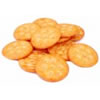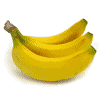Diarrhoea effects almost 80% of travellers so the chances of you spending a few painful days wishing you had more toilet paper are unfortunately inevitable.
There are ways of minimising the risk of diarrhoea but as you will discover even the most careful of travellers will fall foul.
Check out the following information on diarrhoea to help you understand a little more about why diarrhoea is so widespread and also top tips in getting your feet back on the ground and recover from diarrhoea as soon as you can.
What causes Diarrhoea?
There are lots of types of diarrhoea ranging from short, mild discomfort to severe bowel movements containing blood accompanied by fever and vomiting.
Here are the main causes of diarrhoea:
Mild Diarrhoea:
- A simple change in diet or water
- Jet lag
- Climate change
- Stress
More serious Diarrhoea:
- Bacteria
- Food Poisoning (often bacterial)
- Viruses (gastric flu)
- Parasites (inc. Giardia)
Even though you will not want to hear this, diarrhoea can basically be caused by eating someone else's diarrhoea. This can be through the following:

- Inadequate washing of hands when preparing food, drinks, etc.
- Dirty cooking utensils or cutlery
- Flies landing on your food or plates, cup, rim of drinking bottle, etc.
- Touching hands of an infected person who hasn't adequately cleaned themselves.
- Swallowing contaminated water when swimming.
- Poor environmental cleanliness may mean that it is present in the dirt and dust.
How to avoid Diarrhoea
Knowing what causes diarrhoea should help you in trying to avoid it.
From this it should be clear how you can personally eliminate a number of diarrhoea risks:
How to avoid Diarrhoea
- Do NOT drink the tap water
- Do NOT have ice in drinks
- Do NOT eat off obviously dirty, stained utensils
- Do NOT drink from glasses as they may have been washed in dirty water. Always request that you wish to drink directly from the can or bottle BUT use a straw as the rim is often extremely dirty.
Even with careful thought though it is virtually impossible to completely avoid the risk of Diarrhoea as you can not monitor the hygiene of every restaurant you eat in and it is certainly not worth getting paranoid about.
Enjoy the local cuisine and do experiment with the amazing dishes available, just have these facts in the back of your head:
- Do NOT eat luke warm or cold foods
- Do NOT eat food that has been left out
- Check that the meat has been cooked through
- Avoid eating salads as these may have been washed in dirty water
How to treat Diarrhoea
Firstly: Rest
The main side effect of diarrhoea is dehydration due to the loss of valuable salts and fluids. It is therefore vital that you stay rested and drink plenty of bottled water, preferrably with rehydration mixtures (speak to your pharmacist).
For all cases you should consider this advice:
- Rest - allow your body to fight back
- Drink plenty of bottled water or apple juice
- Stop all food for several hours
- Stop all diary products for 3 days
- Avoid anti-diarrhoea remedies (only use them if there are no other symptoms)
- Monitor your temperature
- Examine your diarrhoea for blood or redness
- Keep an eye on the colour of your urine. If it is darker than normal you are dehydrated and must drink immediately.
If symtoms last for more than a couple of days or are severe, contact your nearest doctor or GP.
How long does Diarrhoea last?
It will depend on what type. The typical mild travellers diarrhoea lasts about 3-5 days.
Watery diarrhoea, which usually strikes within 3 days of arriving in a country, can last for about a week.
Other, more serious illnesses such as Giardia come on suddenly and explosively and can last between 2-6 weeks!
If you experience any of the following symptoms it is important that you contact a doctor:
- Passing more than 6 times a day
- Vomiting
- Fever
- Passing blood
- Diarrhoea lasts more than 7 days
- Severe dehydration (very weak, sunken eyes, dry skin, drowsiness, less urine than normal)
What to eat when you have diarrhoea
Once you are feeling a little better you can start getting some strength back by eating the following foods.
Eat these foods as soon as possible:
 Plain, boiled rice
Plain, boiled rice Pasta
Pasta Dry toast
Dry toast Crackers
Crackers
Eat these foods when you are feeling better:
 Bananas
Bananas Vegetables
Vegetables
AVOID the following foods when you have diarrhoea:
 Spicy foods and curries
Spicy foods and curries Acidic fruits
Acidic fruits Fatty foods
Fatty foods Milk and dairy
Milk and dairy Alcohol
Alcohol Coffee
Coffee
Stay hydrated
...and remember to keep drinking water for a fast recovery from diorrhoea!
